Are you feeling overwhelmed by constant calls and letters from debt collectors? You're not aloneâmany individuals face aggressive tactics that cross the line into harassment. In this article, we'll provide you with a powerful letter template to help you dispute these unwarranted claims and regain control of your finances. Ready to empower yourself and take a stand? Let's dive in!
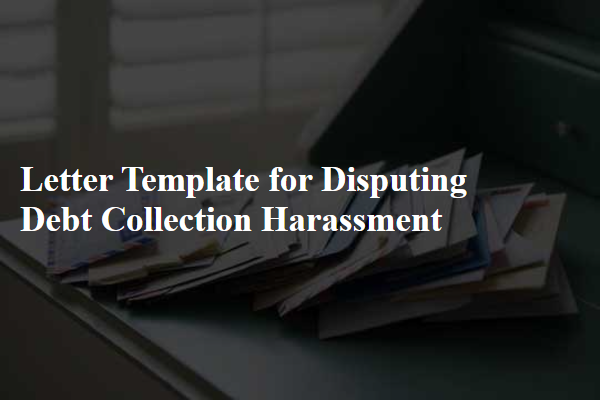
Creditor and Collector Information
Debt collection harassment often involves multiple parties, including creditors (the original lenders such as banks or credit card companies) and debt collectors (third-party agencies trying to recover funds). Creditors typically provide details of the debt, including the amount owed and the account number, while debt collectors may repeatedly contact individuals despite requests to cease communication, violating laws such as the Fair Debt Collection Practices Act (FDCPA). Harassment can take various forms, such as frequent phone calls (more than seven times in a week), aggressive language, or misleading information about the debt's status. Documentation proving the timeline and nature of these interactions is crucial for disputing claims and protecting consumers' rights against unlawful practices.
Detailed Account of Harassment
Debt collection harassment often manifests through repeated phone calls, aggressive messages, and unwanted visits. Individuals may receive multiple calls daily, sometimes from various phone numbers, creating a distressing experience. For instance, consumers report receiving five to ten calls in a single week from debt collectors, often outside of standard hours, such as before 8 AM or after 9 PM. Additionally, collectors may send persistent letters, sometimes using threatening language or vague references to legal action. In extreme cases, debt collectors can visit the individual's workplace, causing embarrassment and anxiety among colleagues. Constant communication can lead to significant emotional distress, impacting one's mental well-being. Furthermore, many individuals unknowingly report these harassment incidents to the Consumer Financial Protection Bureau (CFPB), highlighting the prevalence of this issue on a national scale.
Reference to Applicable Laws and Rights
Debt collection harassment affects countless individuals, leading to mental and emotional distress. Under the Fair Debt Collection Practices Act (FDCPA), debtors possess rights that protect them from abusive, deceptive, and unfair debt collection tactics by agencies. Specific guidelines dictate that collection agencies must refrain from contacting debtors at inconvenient times, such as early mornings or late evenings, unless consented to. State laws may provide additional protections, reflecting the need for localized regulations across jurisdictions like California's Rosenthal Fair Debt Collection Practices Act. Documentation of harassment incidents, including dates and details of interactions, strengthens a debtor's case in disputes. Compliance with these laws ensures fair treatment for consumers, fostering accountability in the debt collection industry.
Demand for Verification of Debt
Debt collection harassment often involves aggressive tactics to recover overdue payments, which can lead to emotional stress and confusion for individuals facing financial difficulties. Under the Fair Debt Collection Practices Act (FDCPA) enacted in 1978, consumers have specific rights regarding debt verification. The initial step involves sending a written request to the debt collector, typically referencing the original creditor's name, account number, and the amount claimed. In addition, detailing the nature of the dispute and requesting a validation of the debt can halt collection activities until proper documentation is provided. Recipients should retain copies of correspondence for their records, as these serve as crucial evidence in any future disputes or legal actions. Furthermore, any failure by the collector to provide adequate proof of the debt may open avenues for filing complaints with regulatory bodies, such as the Consumer Financial Protection Bureau (CFPB), which oversees enforcement of fair lending practices.
Request for Cease and Desist Communication
Debt collection harassment often involves aggressive tactics aimed at recovering overdue payments. Individuals facing such harassment may experience stress and anxiety due to repeated communication from collection agencies. A request for cease and desist communication serves as a formal notification to the agency, demanding the cessation of any contact. Under the Fair Debt Collection Practices Act (FDCPA), debtors possess the legal right to limit direct communications regarding debt recovery. This request should be documented in writing, specifying the debt in question, collection agency details, and the consumer's rights. Failure by the agency to comply can lead to legal repercussions, including potential fines and penalties imposed by regulatory bodies. Properly executed, this communication can help alleviate the emotional burden of persistent debt collection efforts.
Letter Template For Disputing Debt Collection Harassment Samples
Letter template of formal complaint regarding debt collection harassment
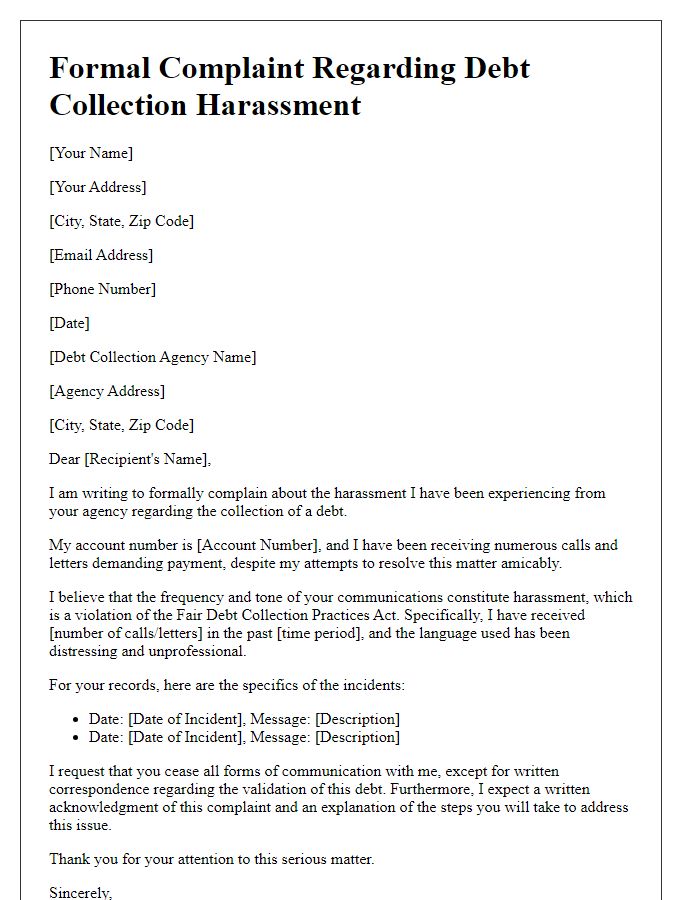
Letter template of notification to consumer protection agency about harassment
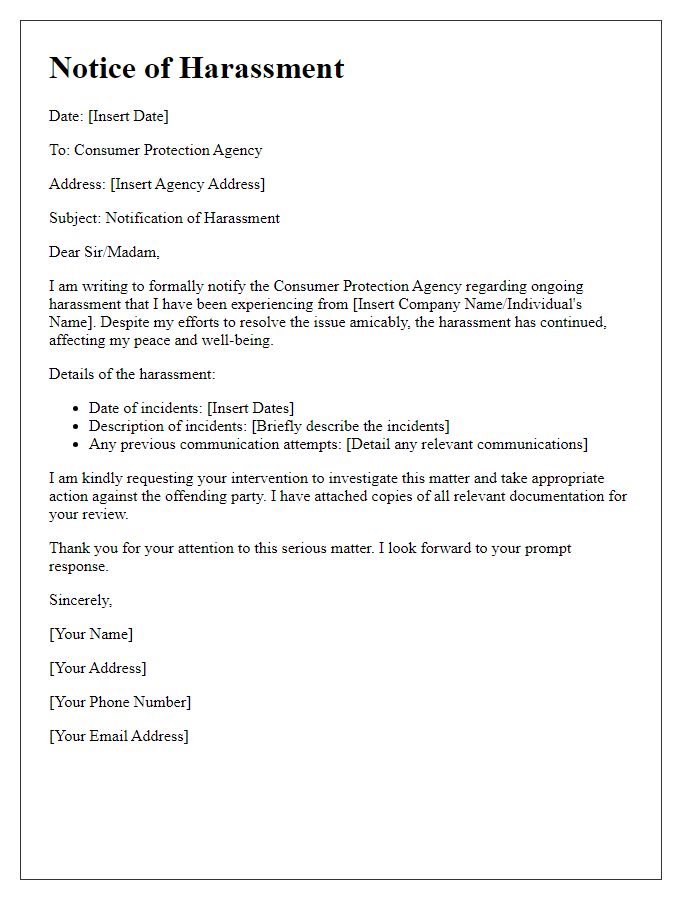
Letter template of documentation request related to disputed debt harassment
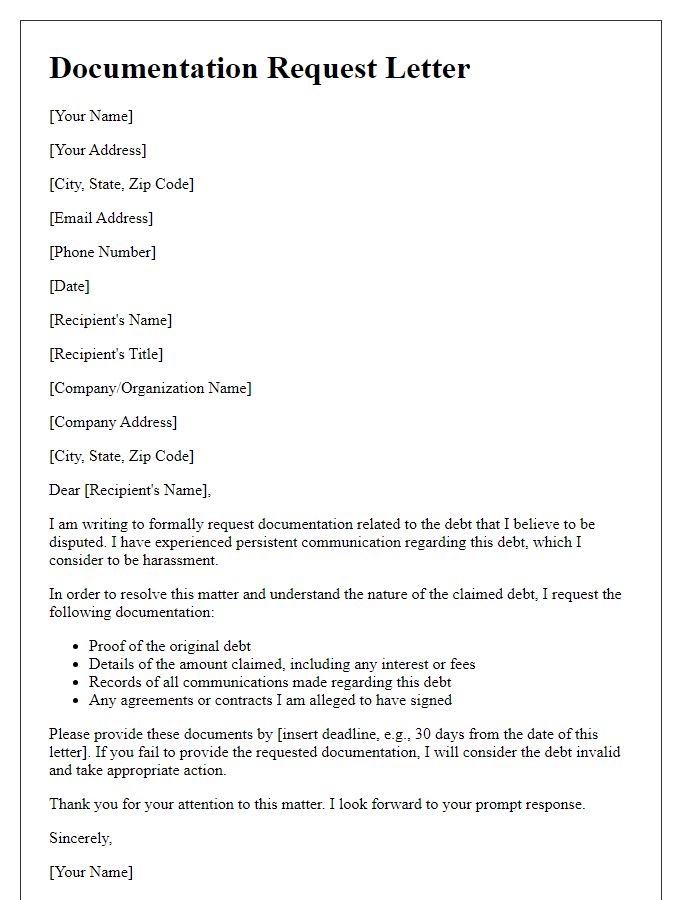

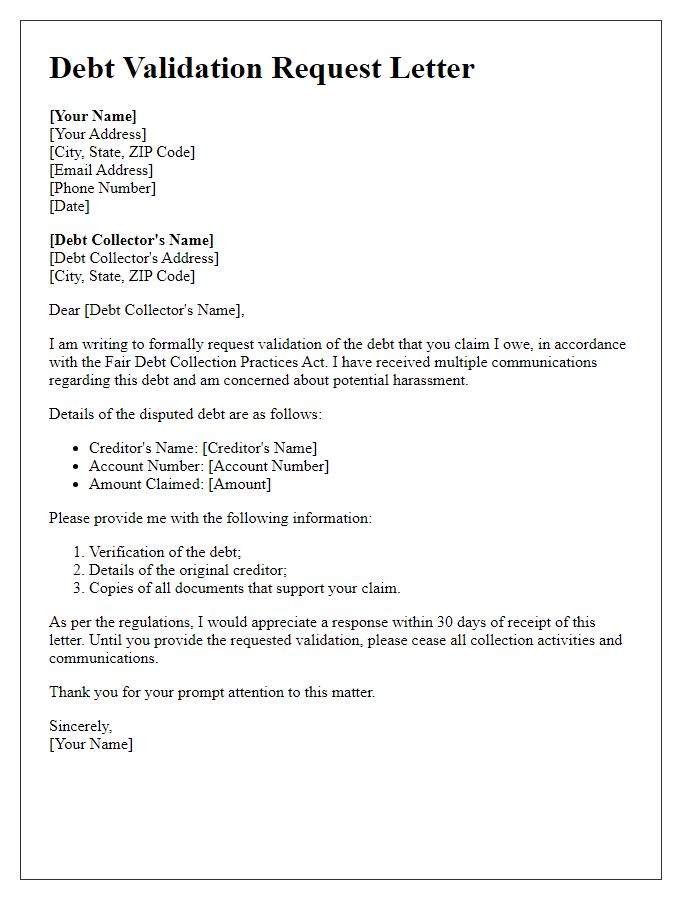
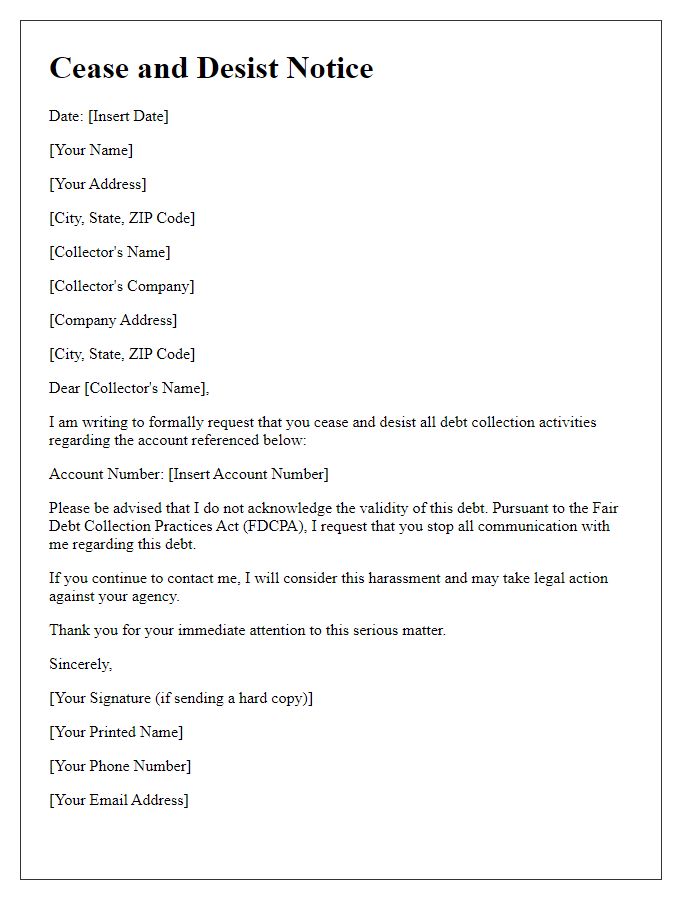
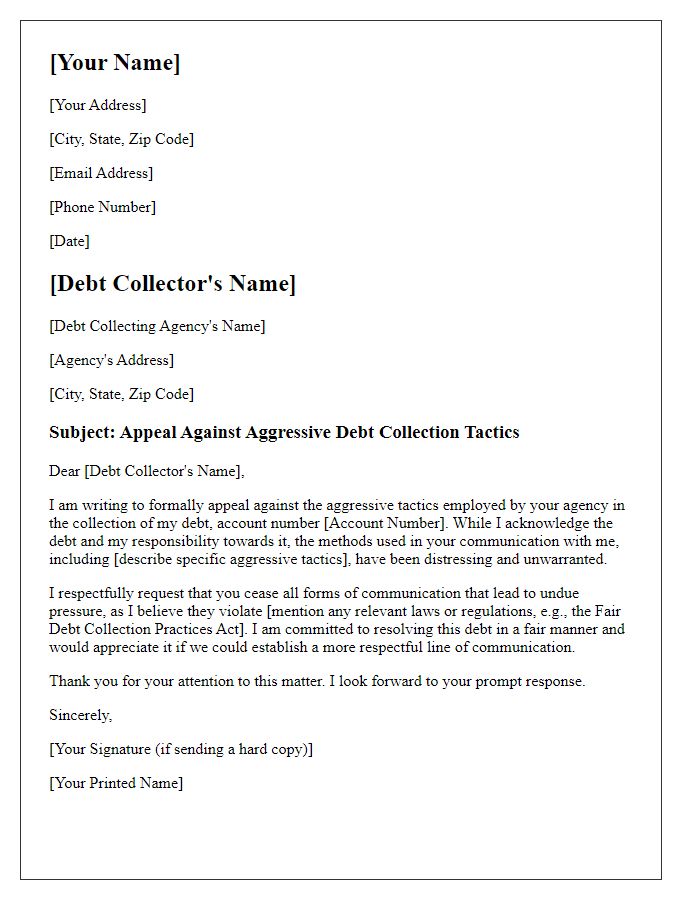
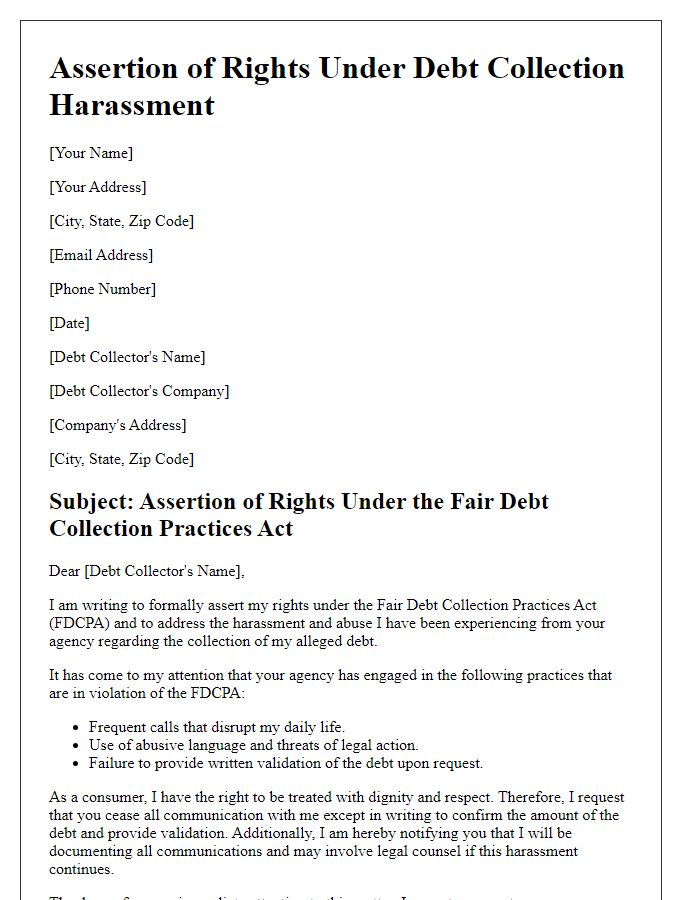
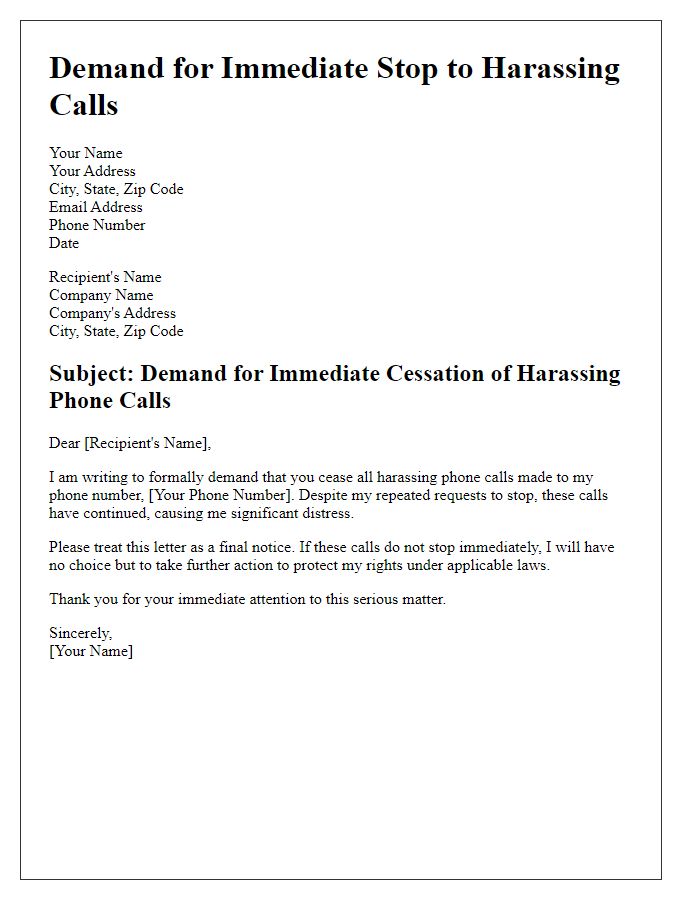
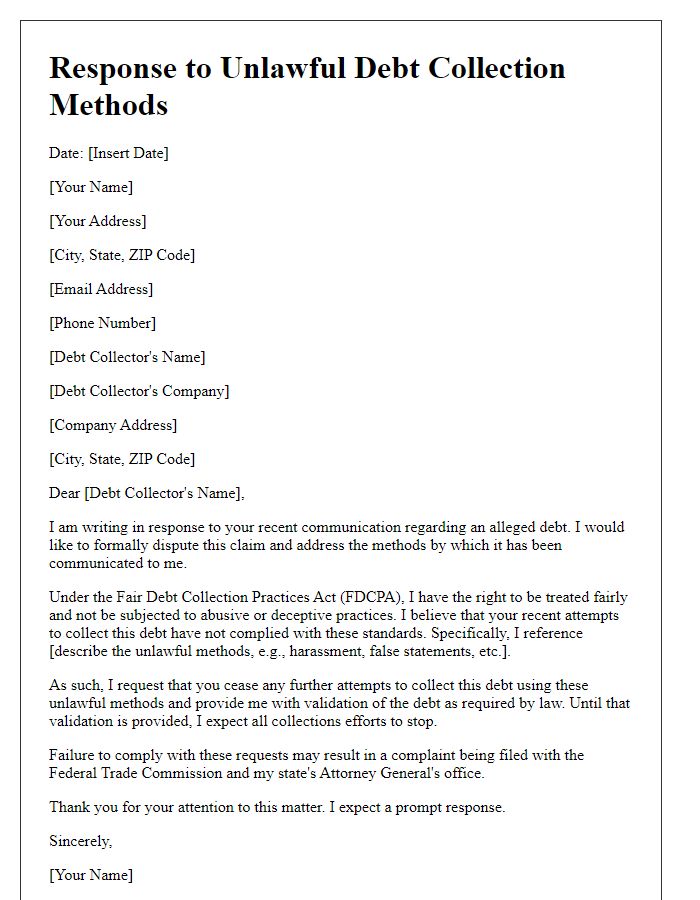
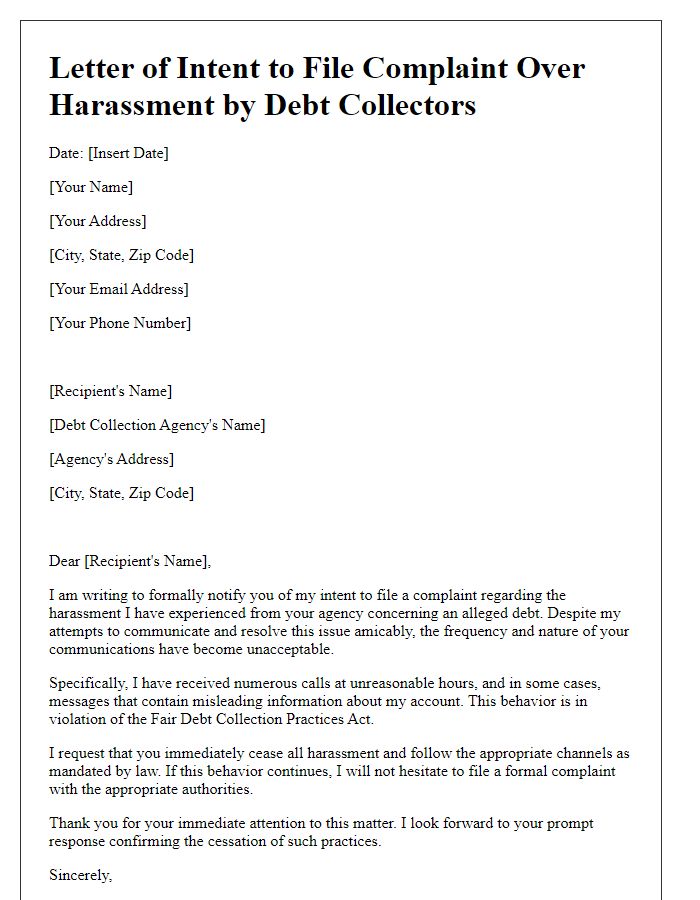

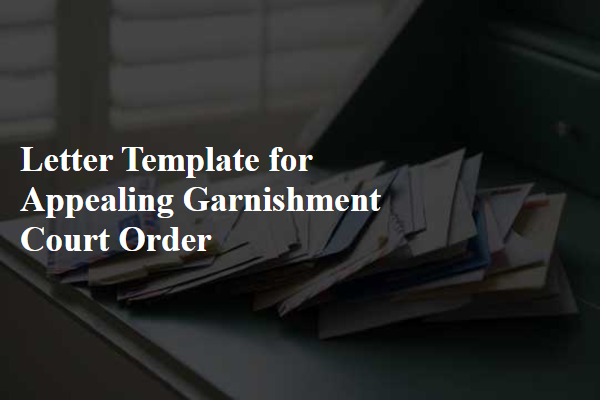
Comments